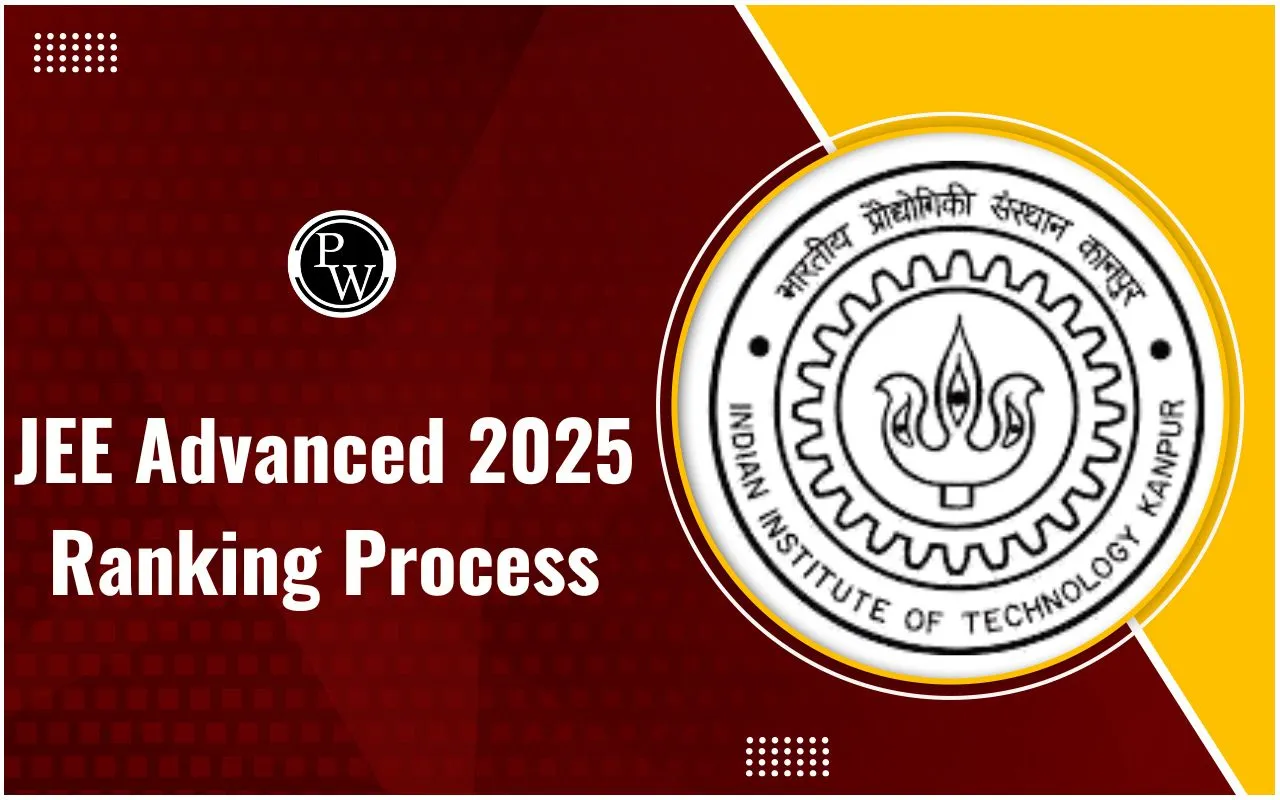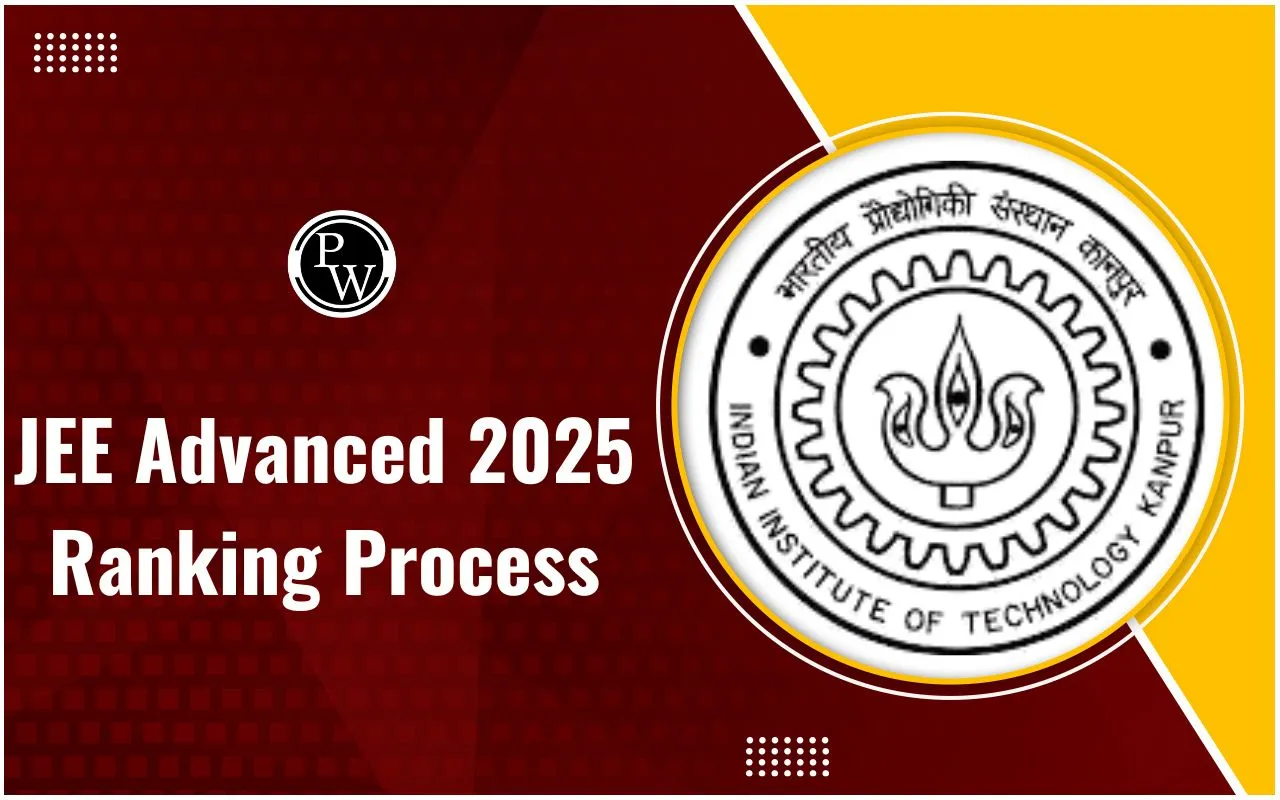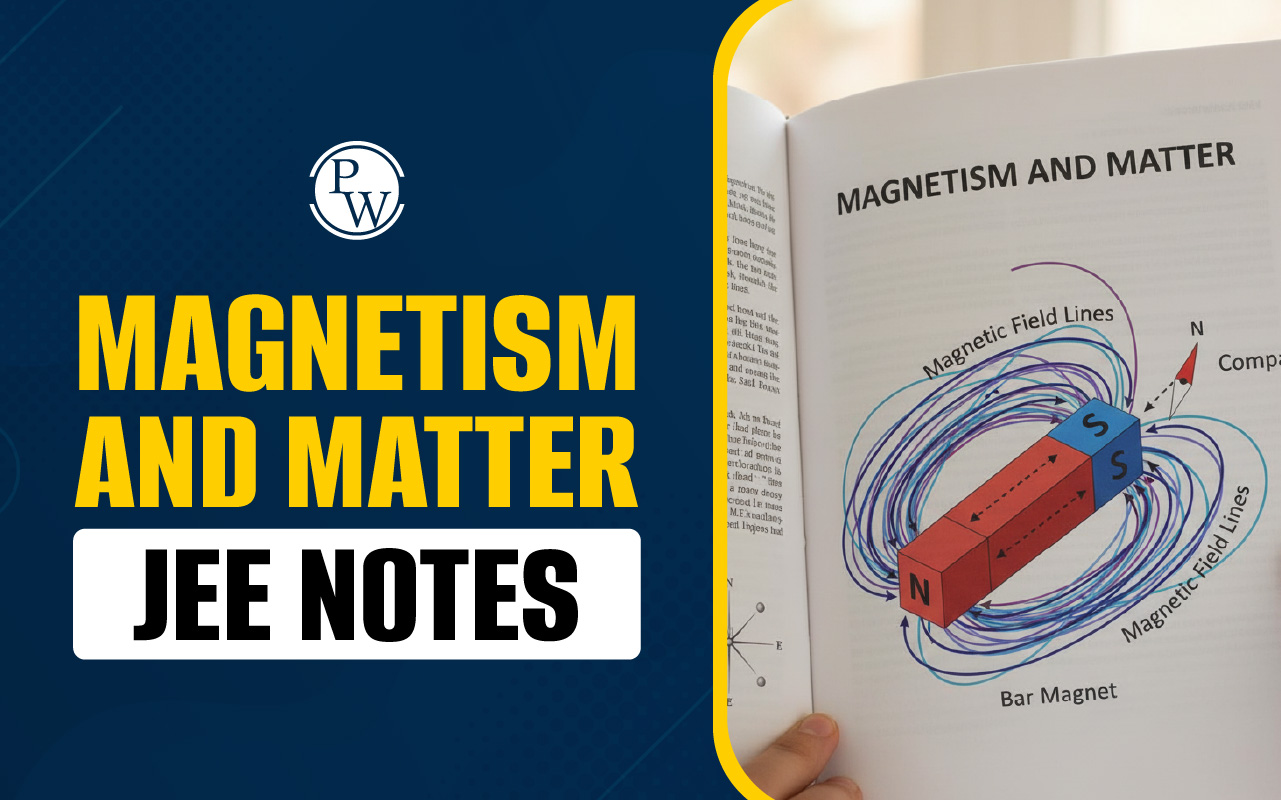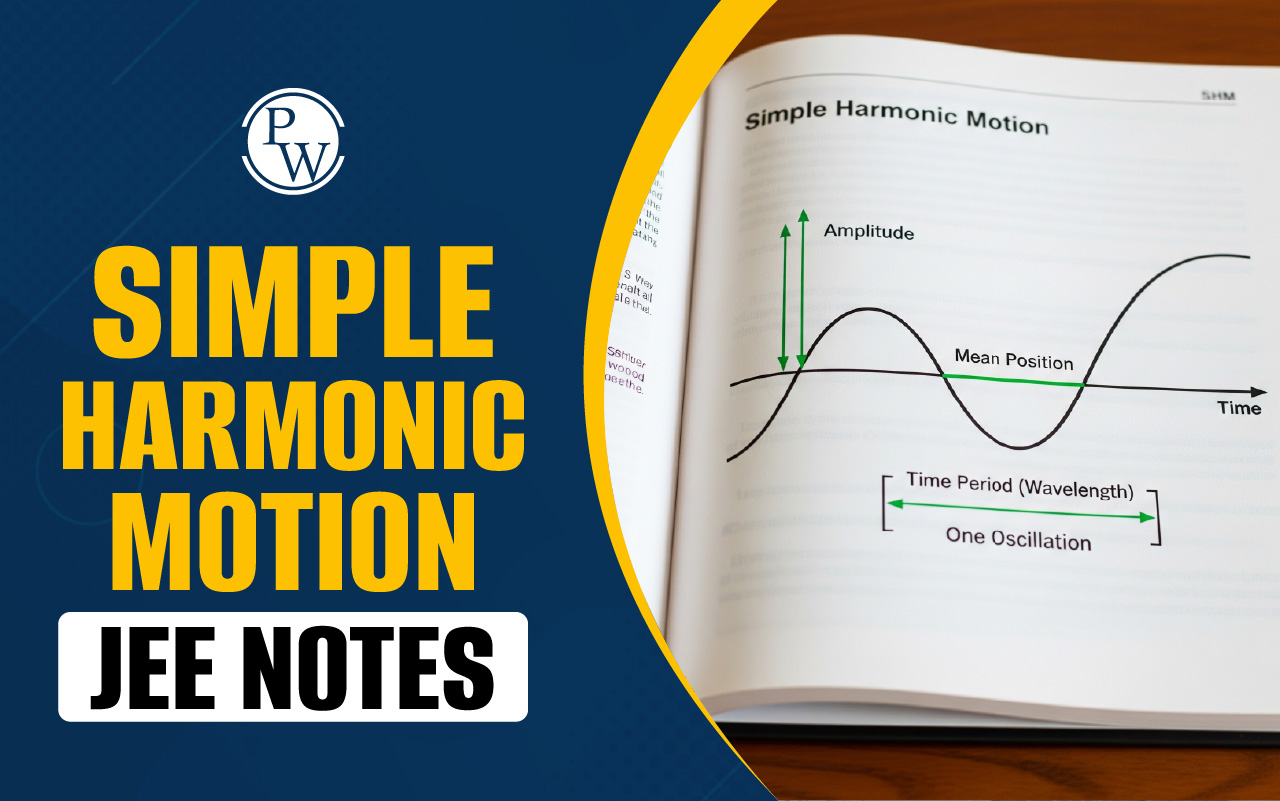

JEE Advanced 2025 Ranking Process: The Joint Entrance Examination (Advanced) is an important exam for students who want to get admission into IITs to pursue higher education courses after completing their schooling. This year, IIT Kanpur is conducting the exam, and as per the official schedule, JEE Advanced 2025 is expected to take place on May 18, 2025. Students who clear JEE Main and meet the eligibility criteria can appear for this exam. Understanding the JEE Advanced 2025 ranking process is important for students aiming for IIT admissions. The ranking is prepared based on marks obtained in both Paper 1 and Paper 2. Many factors, such as tie-breaking rules and category-wise cut-offs, play a vital role in how ranks are prepared in JEE Advanced 2025.
JEE Advanced 2025 Ranking Process
The JEE Advanced 2025 ranking process plays a vital role in determining admission to Indian Institutes of Technology and other top engineering institutes. The ranking is prepared based on the marks obtained by students in all three subjects of JEE Advanced Syllabus 2025, which are Physics, Chemistry, and Mathematics. Since competition is high, the ranking system follows a clear method to make sure of fairness in the selection process.
What Are JEE Advanced 2025 Aggregate Marks?
In order to decide the JEE Advanced ranks, the total marks obtained in Physics, Chemistry, and Mathematics needed to be added together. This total is known as aggregate marks. Each subject carries equal weightage of marks, meaning the scores from all three subjects contribute equally to the final total.
How Are Aggregate Marks Calculated in JEE Advanced?
The aggregate marks are simply the sum of the marks obtained in all three subjects. For example, if a student scores:
-
80 marks in Physics, 85 in Chemistry, and 90 marks in the Mathematics section; then, the total aggregate marks would be 80 + 85 + 90 = 255.
These aggregate marks in the upcoming JEE Advanced 2025 will play a key role in determining the student's final rank. The higher the aggregate marks, the better the rank.
Minimum Marks Requirement for JEE Advanced 2025 Rank List
To be included in the JEE Advanced 2025 ranking process, students must meet certain minimum mark criteria. This means they need to score at least a set number of marks in each subject—Physics, Chemistry, and Mathematics—as well as a minimum total score.
These requirements make sure that only students with minimum marks in all subjects are considered for the ranking system.
-
Subject-Wise Minimum Marks: Each student must secure a minimum number of marks in all three subjects. Even if the total score is high, failing to meet the required marks in any one subject will lead to exclusion from the rank list. This rule makes sure that students perform consistently across all subjects rather than excelling in one and scoring very low in another.
-
Overall Minimum Marks: Apart from subject-wise marks, students must also achieve a minimum aggregate score. This total is calculated by adding up their marks in Physics, Chemistry, and Mathematics. Different categories have different minimum score requirements. For example:
-
General category students need to score at least a certain number of marks per subject and an overall minimum score.
-
OBC-NCL, SC, ST, and PwD category students have slightly lower minimum mark requirements.
Why Meeting the JEE Advanced Minimum Marks Criteria is Important?
If a student does not meet these minimum mark requirements, they will not be included in the JEE Advanced ranking list, even if their total score is relatively high. This means that securing a high overall score is not enough—students must also perform well in each subject to qualify for a rank.
How Are Ranks Prepared in JEE Advanced 2025?
The ranking process in JEE Advanced 2025 is designed to give every student a fair chance based on their performance in the exam. The ranks are decided by adding up the marks scored in Physics, Chemistry, and Mathematics.
Students who score high in JEE Advanced get better ranks, which play an important role when it comes to securing admission to IITs and other top engineering institutes such as NITs, IIITs, GFTIs, etc.
-
Category-Wise Rank Lists: To ensure equal opportunities for students from different backgrounds, separate JEE Advanced rank lists are prepared based on categories. These categories include:
-
General (GEN)
-
Other Backward Classes—Non-Creamy Layer (OBC-NCL)
-
Scheduled Caste (SC)
-
Scheduled Tribe (ST)
-
Persons with Disabilities (PwD)
Each of these categories has its own ranking system. This means that a student will have both a rank within their category and a position in the overall merit list.
Understanding All India Rank (AIR) : The All India Rank (AIR) is the rank given to students based on their total marks in all three subjects. A student with a higher total score will get a lower (better) rank. AIR plays an important role in deciding who gets admission to IITs and other top engineering colleges. Since competition is tough, securing a good AIR increases the chances of getting admission to a preferred IIT and course. This is why students must focus on scoring well in all three subjects of JEE Advanced 2025 to improve their position in the merit list.
What Factors Affect the JEE Advanced 2025 Ranking Process?
Several factors play a role in determining a student's rank in JEE Advanced 2025. These factors ensure that ranks are assigned fairly and that all students get equal opportunities.
1. Tie-Breaking Criteria: In JEE Advanced 2025, if two or more students get the same total marks, a step-by-step process is followed to decide their ranks fairly.
-
Higher Marks in Mathematics: The first factor considered is the Mathematics score. The student with a higher score in this subject is ranked higher.
-
Higher Marks in Physics: If the Mathematics scores are also the same, then the Physics marks are compared. The student with a higher score in Physics is given preference.
-
Total of Mathematics and Physics Marks: If the tie still remains after comparing individual subject scores, then the combined total of Mathematics and Physics marks is checked. The student with a higher total in these two subjects is ranked higher.
-
Age Factor: If all the previous factors fail to break the tie, the older student is given a higher rank.
-
Random Selection: In rare cases where students have the same scores and the same age, a computerized random selection is used to determine their rank.
2. Reservation Policies: The JEE Advanced ranking process also considers the reservation policies set by the Government of India. A certain percentage of seats are reserved for students from different categories to ensure fair opportunities for all. The reservation percentages are as follows:
-
OBC-NCL (Other Backward Classes (Non-Creamy Layer): 27%
-
SC (Scheduled Caste): 15%
-
ST (Scheduled Tribe): 7.5%
-
PwD (Persons with Disabilities): 5%
These policies affect the rank lists by providing separate category-wise rankings, which help students from reserved categories secure seats in IITs based on their eligibility. By understanding these factors, students can get a clear idea of how the JEE Advanced 2025 ranking process works and what influences their final rank.
Importance of a Good JEE Advanced Rank
Getting a good rank in JEE Advanced 2025 is important because it decides admission to top engineering colleges, especially IITs. A higher rank not only helps in securing a seat but also brings many future opportunities.
-
Admission to IITs: A good rank increases the chances of getting into an IIT, especially in popular branches like Computer Science, Electrical, and Mechanical Engineering. Generally, students with ranks within the top 10,000 to 15,000 have a higher chance of admission.
-
Better Career Opportunities: Graduating from an IIT can provide better job opportunities, as many top companies prefer IIT graduates. Higher salary packages, better job roles, and opportunities to work with leading industries become more accessible.
-
Choice of Top Engineering Branches: A higher rank allows students to choose from high-demand branches in IITs. Popular branches such as Computer Science, Artificial Intelligence, and Data Science often require better ranks due to high competition.
-
Scholarships and Financial Support: Many engineering institutions, including IITs, provide scholarships to students based on their JEE Advanced ranks. A good rank can help students get financial aid, making education more affordable.
-
Competitive Edge and Recognition: Scoring well in JEE Advanced shows strong problem-solving skills and dedication, which helps in both higher studies and the job market. Top rankers also get recognition and awards, which can further boost academic and career opportunities.
Hence, the JEE Advanced ranks are based on aggregate marks in Physics, Chemistry, and Mathematics, and students must meet the minimum marks criteria to be included in the rank list. Separate rank lists are prepared for different categories, and in case of a tie, factors like Mathematics and Physics scores, age, and, if needed, a random selection process are used to decide ranks. Understanding how ranks are prepared in JEE Advanced 2025 helps students plan better for the final exam to improve their chances of securing admission into their preferred IIT and engineering branch.
JEE Advanced 2025 Ranking Process FAQs
Q.1 : What does the JEE Advanced 2025 ranking process mean?
Q.2 : Why is it important to have a good rank in JEE Advanced?
Q.3 : What happens if two applicants have the same marks in JEE Advanced?
Q.4 : Does JEE Advanced 2025 ranking criteria differ as per categories?













